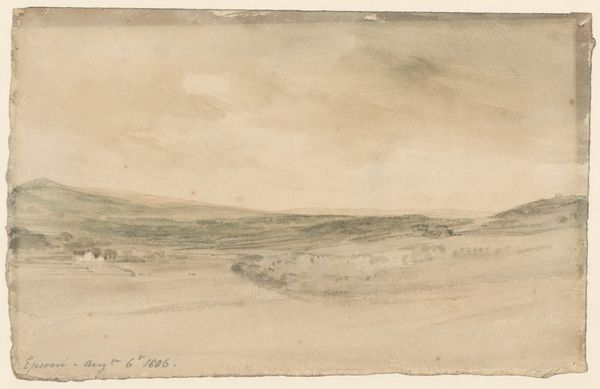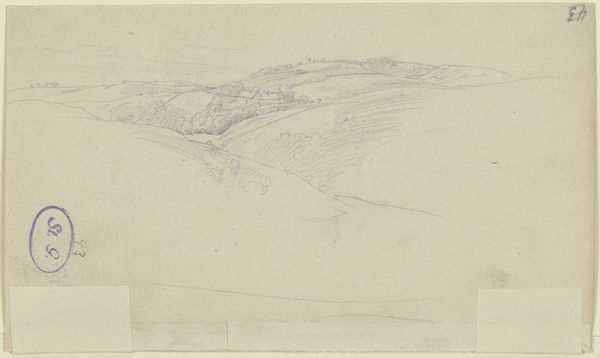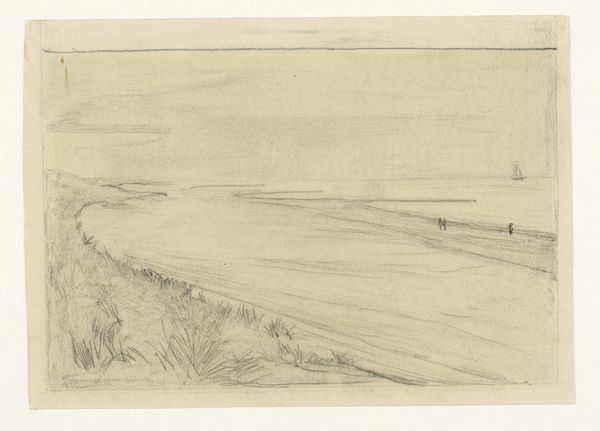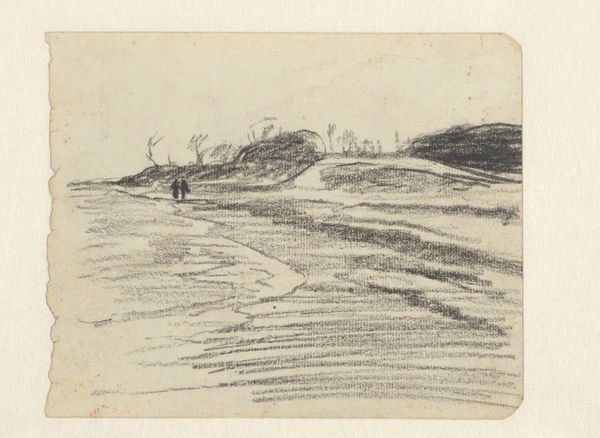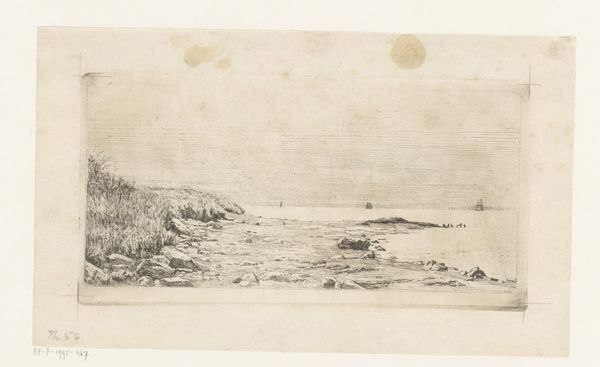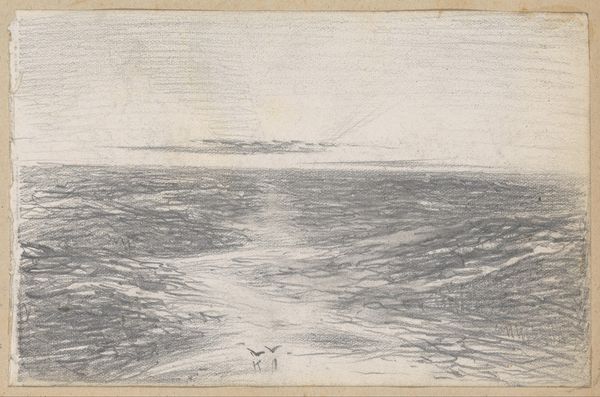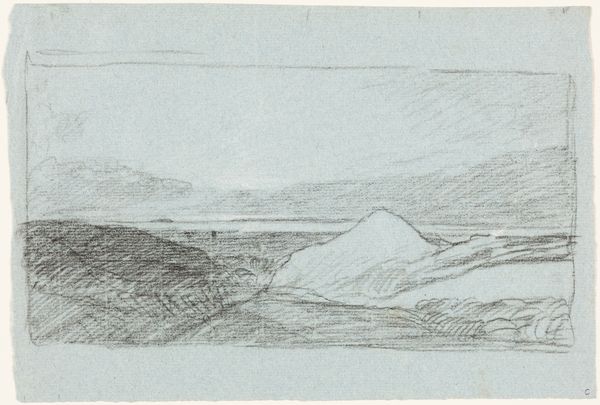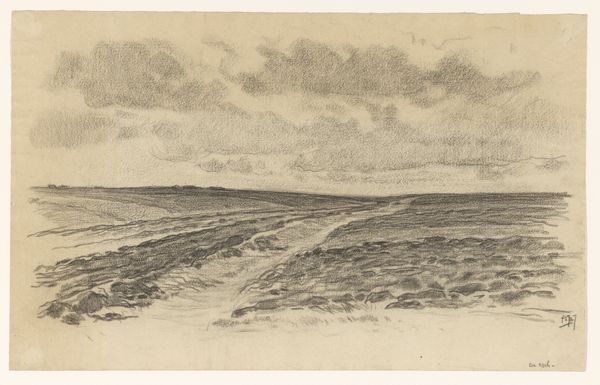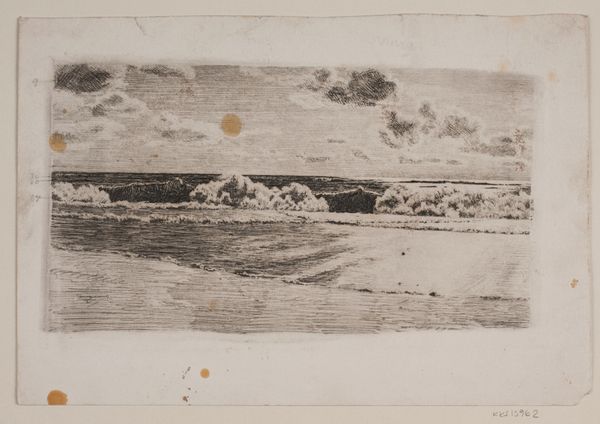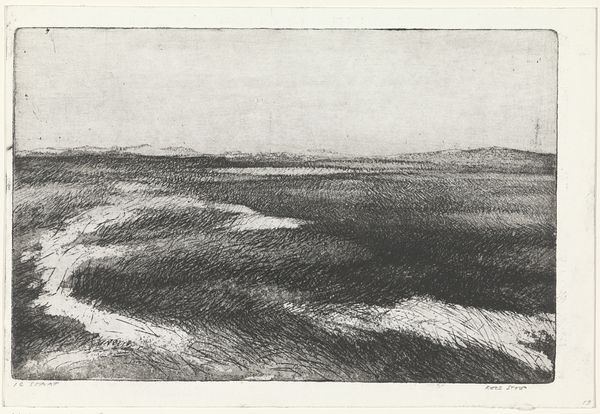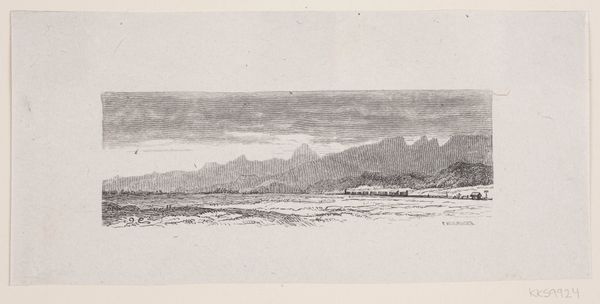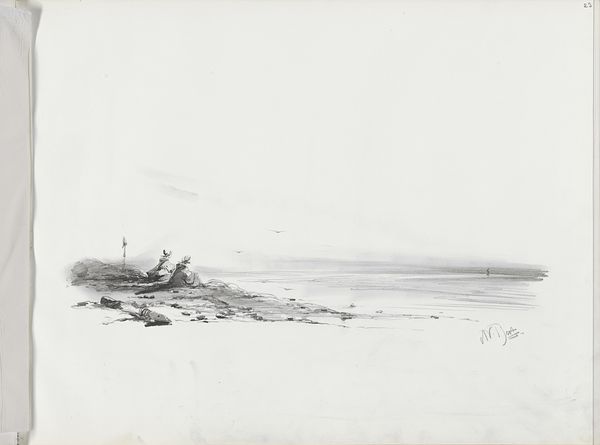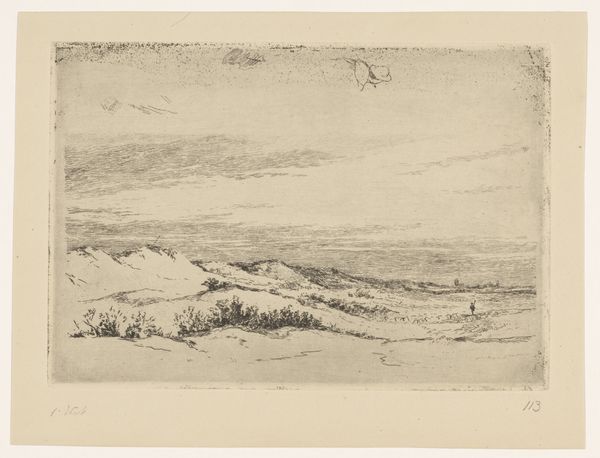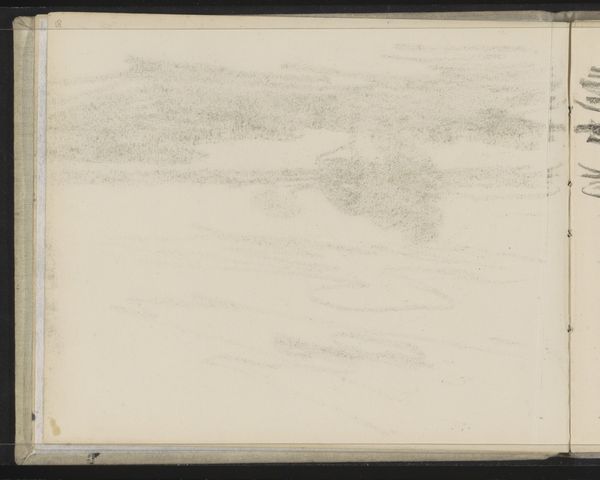
drawing, pencil
#
pencil drawn
#
drawing
#
pencil sketch
#
landscape
#
pencil
#
realism
Copyright: Public Domain
Hermann Gollner rendered this seacoast scene in pencil sometime in the 19th century. Gollner's work reflects the shift in artistic focus towards landscape as a subject worthy of exploration in its own right. In the 19th century, the rise of Romanticism celebrated nature as a source of spiritual and emotional experience. Simultaneously, developments in transportation enabled artists to travel more extensively, documenting different regions and their unique characteristics. In Germany, where Gollner lived, these depictions also fostered a sense of national identity through shared landscapes. The lack of human presence in this drawing emphasizes the sublime power and vastness of nature, a common theme in Romantic art. The work invites us to reflect on our relationship with the natural world and consider the cultural values embedded in its representation. To truly understand this image, we can look into the archives of the Städel Museum, where it is held, as well as the records of the artist. Art history is as much about context as it is about the image itself.
Comments
No comments
Be the first to comment and join the conversation on the ultimate creative platform.
